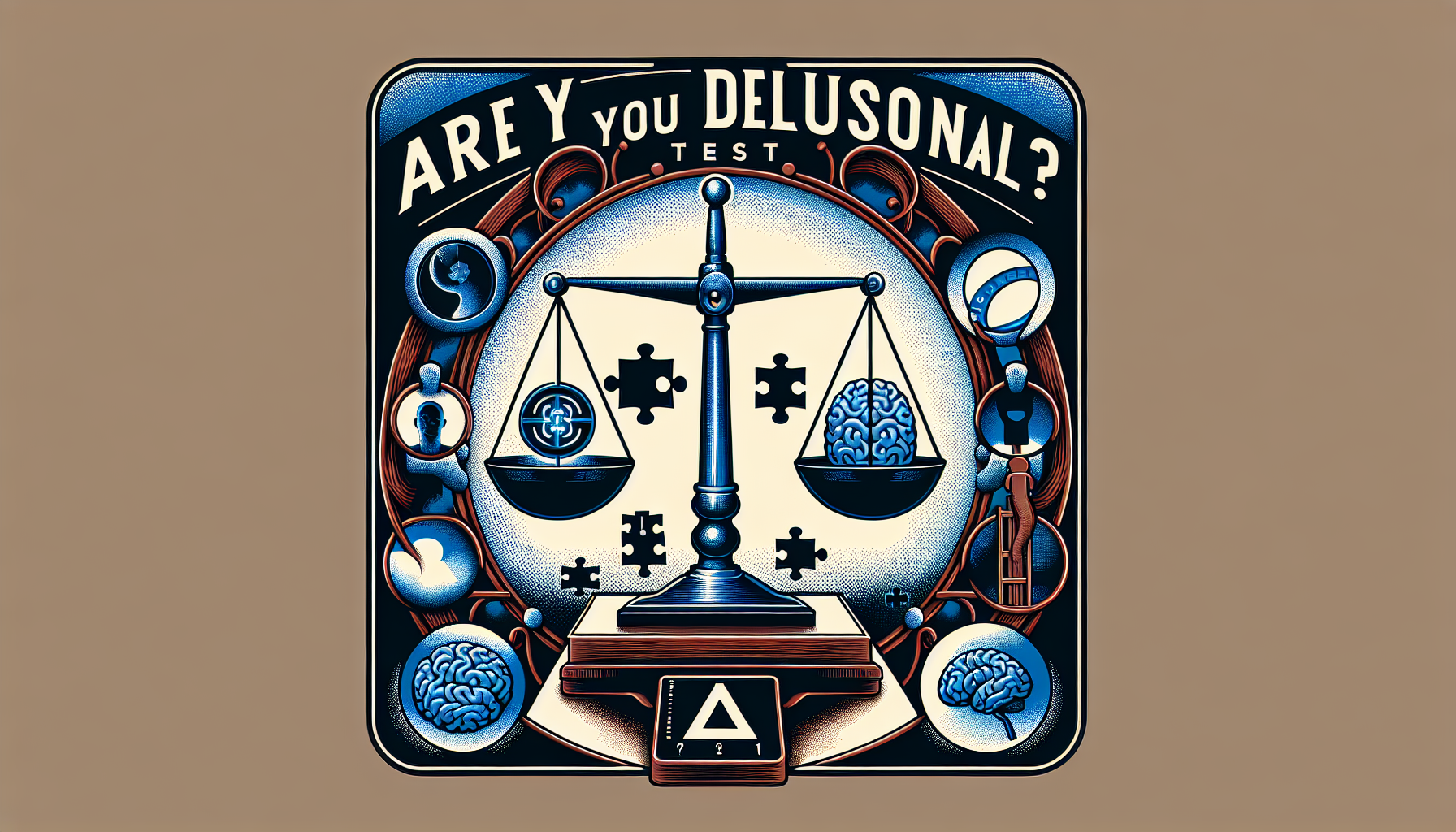Hello there, buildalinkers! It’s Bob here, and today I’m diving into a fascinating topic: the “Are You Delusional Test.” We’ll explore what delusions are, the signs to look out for, and how to assess your own thoughts and beliefs. So, grab a cup of coffee and let’s get started!
Understanding Delusions
Delusions are false beliefs that are firmly held despite evidence to the contrary. They can manifest in various forms and are often associated with mental health conditions such as schizophrenia, bipolar disorder, or severe depression.
It’s important to note that delusions are not simply misconceptions or misunderstandings; they are deeply ingrained beliefs that can significantly impact an individual’s perception of reality.
Common Types of Delusions
There are several common types of delusions that individuals may experience:
- Paranoid Delusions: These involve a deep-seated suspicion or belief that others are plotting against or intending harm towards the individual.
- Grandiose Delusions: Individuals with grandiose delusions often believe they possess exceptional abilities, talents, or status that exceed reality.
- Somatic Delusions: These delusions revolve around the belief that one has a physical illness or defect, despite medical evidence indicating otherwise.
Self-Assessment: Are You Delusional?
Assessing one’s own thought patterns and beliefs can be a complex and sensitive process. It’s crucial to approach self-assessment with openness and honesty.
Consider reflecting on your beliefs and thoughts, and evaluate whether any of them align with the characteristics of delusions. Seek input from trusted friends or mental health professionals if you find yourself questioning the validity of your beliefs.
Seeking Professional Guidance
If you suspect that you or someone you know may be experiencing delusions, it’s imperative to seek professional guidance. Mental health professionals can provide accurate assessments, support, and appropriate treatment options tailored to individual needs.
Remember, discussing concerns about mental health should never be stigmatized or dismissed, and seeking help is a sign of strength and self-awareness.
Share Your Thoughts
Have you ever encountered delusions, whether in yourself or someone close to you? I’d love to hear your thoughts and experiences. Feel free to leave a comment below and share your insights on this important topic.
Thank you for reading, and remember, your voices and opinions matter. Together, we can continue to build a supportive and understanding community here at Buildalink.
